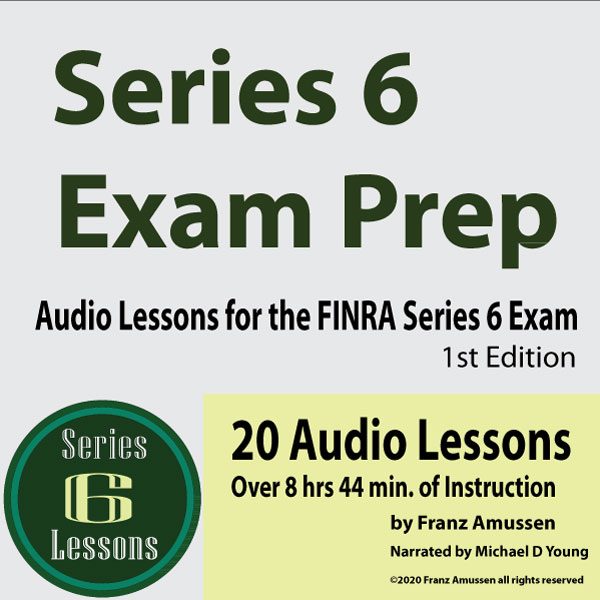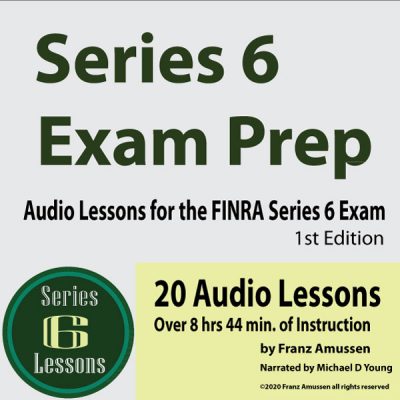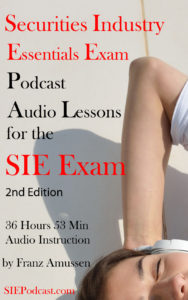Series 6 Lesson 6 Investment Objectives
Series 6 Lesson 6
You need to spend time getting to know your customer so that you understand what kind of recommendations you should make. Recommendations that are based on knowledge of the customer are said to be suitable. You have to use reasonable diligence in getting to know your customer and establishing the “essential facts” before making recommendations. You need to understand the customer’s investment profile, including things like: their goals, needs, time constraints, tolerance for risk, age, other investments, liquidity needs, investment experience, etc.
A recommendation is a communication that could reasonably be seen as suggesting that a customer do something or refrain from doing something coming from either a person or a software program, when it has to do with a security or an investment strategy. It is not a recommendation if a broker-dealer simply explains investment strategies in general without suggesting a specific one. Both the recommendation to sell or the recommendation to hold are considered official recommendations.
For a suggestion to be suitable, the agent has to be diligent in understanding the potential risks and rewards associated with a specific security and must determine that that security must be suitable for at least some investors. Then the broker-dealer must do enough research to make sure the investment is suitable for that specific customer. You also have to make sure that the number of transactions that you are suggesting makes sense given this particular customer’s investment profile.
If a customer does not provide all the information requested, the broker-dealer has to decide if they have enough information to go on, using his or her best professional judgement. Broker-dealers must also act a fiduciary, which means they always must act in the customer’s best interests and not in their own. You should not recommend something based on a higher commission for yourself at the expense of the customer, for example. This does not mean that you always have to recommend the least expensive investment, but it does mean that it has to make sense.
Investment Objectives = what does your customer want to accomplish with this investment?
- income (bonds)
- high yield (municipal bonds/funds)
- growth (common stock/stock funds)
- portfolio diversification (bonds tock, money market)
- preserving capital, Government/Treasury, Ginnie Mae
- liquidity (money market funds)
- speculation (options, high-yield bonds, precious metals)
Growth vs Aggressive Growth
Aggressive growth investments are international funds, sector funds (like healthcare, financial services, etc.) and funds from emerging markets. Are you playing offense or defense?
If you are going to be an aggressive investor, you need to have the following things: steady employment, a long time horizon, good cash flow to invest, and a high tolerance for risk. You will more likely invest in stocks and in mutual funds, though not all stocks are equally aggressive. Blue chip stocks are relatively stable, but low cap stocks are more aggressive. It is also more offensive to invest in luxuries and unproven technologies that may or may not take off. If they do, you stand to make a lot of money, but if they don’t, you may lose everything.
A defensive investor will invest in stocks that sell things that will survive an economic downturn, things that are essential rather than luxuries. These can include food, clothing, and healthcare products.
We also offer lessons for:
The SIE Exam (Securities Industries Essentials Exam)
The Life Health Insurance Exam
click on any of them to find out more
Podcast: Play in new window | Download (Duration: 10:51 — 4.5MB)
Subscribe: Apple Podcasts | RSS | Subscribe to Podcast




